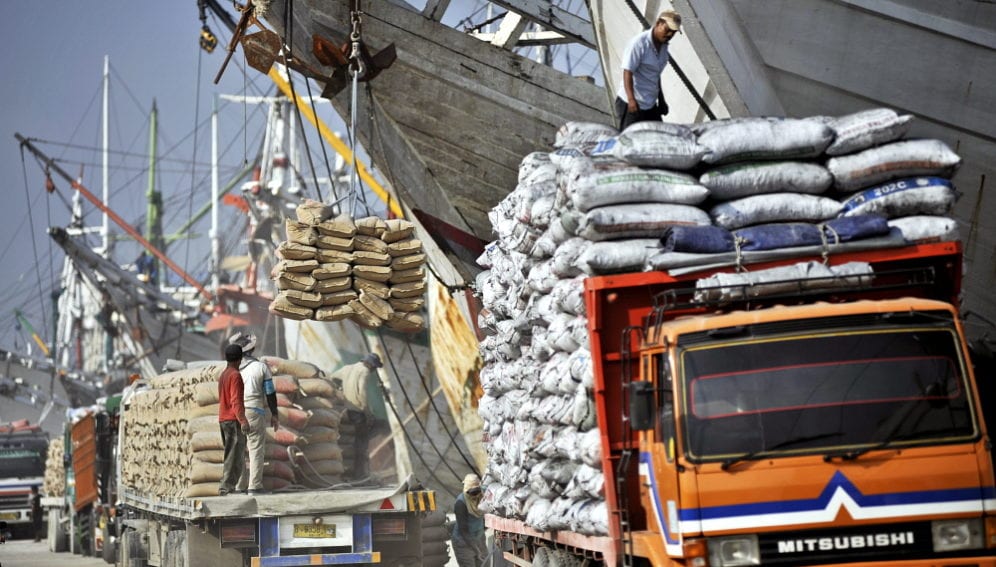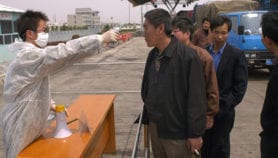By: Mike Ives and Cecilia Rosen
Send to a friend
The details you provide on this page will not be used to send unsolicited email, and will not be sold to a 3rd party. See privacy policy.
[BANGKOK/BUENOS AIRES] Recent trade talks between 12 countries in the Pacific rim, expected to continue next year after unsuccessful negotiations last month, have sparked dissent on both sides of the Pacific.
Campaigners from Latin America and South-East Asia fear the talks could further restrict internet freedoms and limit access to generic medicines by extending big companies’ grip on intellectual property (IP).
The negotiations over the Trans-Pacific Partnership (TPP) agreement have been secretive, but a draft chapter on IP was leaked in November by media organisation WikiLeaks, fuelling concerns over the ramifications of the proposed deal.
“The vital lifeline of affordable generic medicines that millions depend on could be severely constrained by the terms of the trade pact,” the medical aid organisation Médecins Sans Frontières said in a statement last month.
The organisation said that US demands for clinical data for some medicines to be locked up for 12 years would grant additional monopoly protection to biopharmaceutical firms.
This would delay approvals of generic versions of drugs, it added. The Geneva-based organisation urged the countries involved in the negotiations to reject provisions that will harm access to medicines, saying the current terms of the agreement will restrict access to affordable medicines for millions of people.
Worries in South-East Asia
Trade negotiators arrived in Singapore last month for another round of talks on the TPP, a planned 12-country trade agreement led by the United States that involves four countries — Brunei Darussalam, Malaysia, Singapore and Vietnam — from the ten-member Association of Southeast Asian Nations (ASEAN).
Australia, Canada, Chile, Japan, Mexico, New Zealand and Peru are also taking part.
US officials say the free-trade deal would include “high-standard” provisions on labour rights, healthcare and the environment, while also catalysing long-needed reforms of the state-owned enterprises that dominate some Asian economies.
“The vital lifeline of affordable generic medicines that millions depend on could be severely constrained by the terms of the trade pact.”
Médecins Sans Frontières
“In all of our trade agreements, it is made clear that all countries have a right to regulate in the interest of the health, safety and environmental protection of their people,” US trade representative Michael Froman told reporters on a conference call in August.
But activists in several countries warn that the agreement, if signed, would restrict the availability of essential goods and services such as medicines, seeds and internet access in parts of South-East Asia and the wider developing world, with dire consequences for millions of people.
“South-East Asian countries that are able to undercut China in wages and working conditions may gain some relatively short-term jobs out of the TPP, but they would have to trade away affordable healthcare, domestic agriculture and much of their national sovereignty in exchange,” says Arthur Stamoulis, executive director of Citizens Trade Campaign, a Washington-based coalition of US advocacy groups.
Intellectual property laws in much of South-East Asia are weak compared with similar laws in the United States, so opponents of the TPP worry that it would allow multinational corporations to bend local laws to their advantage, typically by asserting a legal right to protect their intellectual property.
Health concerns
For example, the TPP could allow multinational tobacco companies to block future government attempts to require larger labels on cigarette packaging that warn of smoking’s health effects, says Mary Assunta, senior policy advisor at the Southeast Asia Tobacco Control Alliance. She adds that 127 million adults already smoke in the ASEAN region, and a fresh uptick in smoking there would have major public-health impacts.
The trade deal would also strengthen the hand of international pharmaceutical companies and reduce public access to generic medicines, says Saunthari Somasundaram, president of the National Cancer Society Malaysia.
The cost of medicine is already a major burden to affordable healthcare in Malaysia, where 80 per cent of the population receives healthcare through government hospitals or clinics, Saunthari adds, and generic medicines are a life-saving resource for many low-income patients.
“We are opposed to any regulations that will diminish the ability of [Malaysia], which is a developing country, to effectively treat cancer and safeguard the health of its people,” she tells SciDev.Net.
Digital rights
The TPP would also restrict freedom in the digital realm, according to Jeremy Malcolm, senior policy officer at Consumers International, a London-based advocacy group representing consumer groups in 120 countries.
Malcolm says the deal would permit internet service providers to monitor private photos or videos if the material were suspected of infringing on copyrights.
This, he says, “is problematic from a privacy perspective. To lock [in] this capability of trade law without a full review of the privacy implications is disturbing.”
In Singapore last month (7-10 December), the TPP countries failed to reach a deal, but vowed to continue their long-running negotiations in 2014. Michael Froman, the US trade representative, described the four-day talks as “very successful”.
But Stamoulis of Citizens Trade Campaign tells SciDev.Net that developing countries should carefully study the lessons from previous US-led free-trade agreements, which he said contributed to rural displacement and downward pressure on wages, among other problems.
He adds that the competitive advantages developing countries might gain by joining the TPP are far from assured in the long term, since other nations could potentially undercut them by signing other free-trade deals with the United States.
Concerns from Latin America
Francisco Vera, projects director of the Chilean NGO Derechos Digitales (Digital Rights), argues that the TPP agenda would disturb the way cultural goods are produced and distributed in Latin America, where legal standards are already high enough to guarantee authors protection for their work.
The draft TPP agreement would benefit only the industries and the owners of these rights and not necessarily the authors, he says.
“It represents a serious threat to our internet rights and also to other rights linked to IP issues,” he says. “The possible advantages that a country such as Chile might receive from an agreement such as this one are cancelled out by the TPP’s negative impacts.”
Vera, who leads a campaign to open up discussions on the pact, says that TPP will make it harder and more expensive to access films, books and wider knowledge, and stricter provisions for copyright violations will lead to a drastic fall in such material on the internet.
Although the internet is global, economic and social realities are local and national, and that must be taken into account, Julio Vega, the director general of the Mexican Internet Association, tells SciDev.Net.
He says the agreement’s intention to restrict the free flow of personal data for commercial transactions and its request for transnational companies to have national internet services in every country could hinder the development of online businesses.
These actions would inhibit widespread internet access in countries such as Mexico, where just 35 per cent of the population are on the internet, Vega says.
He says the Mexican Internet Association is not against punishing illegal activity, but it questions the way the TPP plans to fight digital piracy by using internet providers to monitor users and enforce laws. Instead, governments must be responsible for this, he argues.
“The TPP seeks to apply the same norms that already exist in some developed countries in others which are less developed, and will stop the possibility of local industries developing knowledge and innovation,” adds Vera.
> Link to the negotiated draft text for the TPP intellectual property rights chapter
See below for an MSF video about the TPP:














